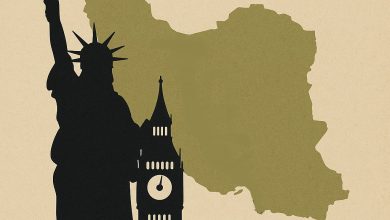Social Justice and Political Legitimacy from a Social Psychology Perspective

Abstract:
Social justice is one of the fundamental pillars of social cohesion and political stability in human societies. This interdisciplinary article explores the relationship between social justice and the legitimacy of political authority through the lens of social psychology. Drawing on theories such as Adams’ Equity Theory and the Psychological Contract, it argues that perceptions of inequality and the violation of collective expectations lead to negative emotional responses, decreased social trust, and ultimately the erosion of political legitimacy. The paper further examines three critical historical periods in modern Iranian history to analyze how perceptions of justice contributed to the rise or decline of political legitimacy. Finally, it proposes policy recommendations grounded in social psychological principles to restore and strengthen legitimacy.
Introduction:
Social justice is a core concept in the social sciences, encompassing psychological, sociological, and political dimensions. In social psychology, justice is not only about material distribution, but also how individuals perceive fairness, equal opportunities, and respect for human dignity. According to Adams’ Equity Theory, individuals continuously compare the ratio of their inputs (efforts) to outcomes (rewards) with those of others. A perceived imbalance can lead to psychological reactions such as anger, demotivation, reduced productivity, or even protest behaviors. Additionally, the Psychological Contract theory highlights the role of unwritten expectations between the public and governing bodies. When governments fail to meet these expectations, their legitimacy in the eyes of the people declines.
Political Legitimacy and Its Link to Social Justice:
Legitimacy, in its basic definition, refers to the voluntary acceptance of authority by society. Max Weber identified three types of legitimacy: traditional, charismatic, and rational-legal. In modern societies, rational-legal legitimacy depends on institutional effectiveness, fair enforcement of laws, and equitable resource distribution. Violations of social justice—through structural corruption, discriminatory legal practices, and growing economic inequality—reduce civic participation, increase public dissatisfaction, and severely damage social capital. These factors ultimately threaten the legitimacy of the governing system.
Comparative Analysis of Three Historical Periods in Modern Iran:
An examination of three transformative periods in Iran’s political history demonstrates that perceived injustice played a critical role in undermining the legitimacy of ruling regimes:
-
The Fall of the Qajar Dynasty and the Rise of Reza Shah:
The Qajar regime’s failure to meet public demands, coupled with rampant corruption and institutional decay, created fertile ground for the emergence of an authoritarian regime. Although Reza Shah implemented modern reforms, his disregard for justice-based demands and political repression led to deep dissatisfaction, culminating in his eventual exile. -
The Government of Dr. Mohammad Mossadegh:
While Mossadegh’s administration enjoyed broad popular support, it faced severe economic crises and external pressures. Internal instability, elite fragmentation, and conflicting interests among power centers hindered economic justice. These factors paved the way for the 1953 coup and the collapse of his government. -
The Fall of the Pahlavi Regime:
During the 1970s, the country experienced a widening class divide, pervasive corruption, and systemic political and economic injustice. Widespread public perception of discrimination triggered mass uprisings and led to the monarchy’s downfall.
Current Situation in the Islamic Republic of Iran:
Today, Iran faces challenges such as increasing economic inequality, legal discrimination, declining trust in executive institutions, and rising perceptions of relative deprivation. These conditions structurally resemble past periods of unrest. From a social psychology standpoint, such factors directly undermine regime legitimacy. In the age of information and rising public awareness, continued neglect of these issues could make the legitimacy of the political system highly vulnerable—opening space for foreign actors to exploit internal dissatisfaction.
A Global Perspective on Justice and Legitimacy:
Internationally, even powerful political systems like that of the United States face declining legitimacy due to internal and global injustice. Racial inequality, economic stratification, and political power concentration—coupled with unilateral international behavior—have fueled extremism and diminished social capital. These developments underscore, from a social psychological view, that injustice is not merely a domestic issue but a global phenomenon with far-reaching implications for political legitimacy.
Conclusion:
Social justice is not only a moral and legal imperative but also a psychological necessity for sustaining political legitimacy. Perceptions of fairness, impartial application of the law, and governmental responsiveness to public expectations are psychological pillars of legitimacy. No political system can endure without the mental and social support of its people. A regime that lacks justice will inevitably face existential challenges.
Policy Recommendations:
-
Structural reform of the judiciary to ensure legal justice and reduce judicial discrimination.
-
Greater transparency in economic mechanisms and effective anti-corruption measures to address perceived injustice.
-
Strengthening social capital through national dialogue, institutional accountability, and rebuilding public trust.
-
Involving social psychologists in policymaking processes to continuously evaluate public perceptions of justice.
-
Establishing public feedback systems to monitor public satisfaction and align policies with societal psychological dynamics.






